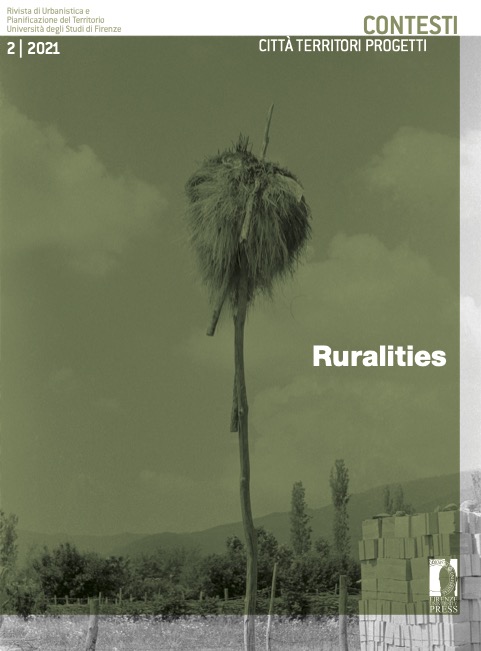Published 2021-12-23
Keywords
- peasant resistance,
- gender,
- ecological transition,
- rural-urban migration,
- Global South
How to Cite
Abstract
Diola Kasa peasant resistance in Lower Casamance can be described as an unprecedented hybridisation of spirituality, rationality, ecosystem awareness and attention to climatic changes. This paper highlights the centrality of the female role in the Diola culture as a constant and driving force of resistance. Peasant resistances combine 'inertial' factors with new possible interpretations of spatial and social relations. They differ in nature, strategies and social formations. They can at the same time be considered as 'resources' that push towards the change of the status quo and destructive, extractive and homologating dynamics, but they can also become the object of contrast by those in power, local and not local (often combined). Diola's reading of the female role in the process of identity formation highlights its temporal continuity in the succession of epochs (pre-colonial, colonial, post-colonial) and the spatial continuity between rural and urban migration. The feminine has been the guide of an anti-hegemonic identity process that in the contemporary era is connoted with a decolonial orientation. The definition of the ecological transition strategies of the investigated territories is determined around this central role. The paper refers to the Diola Kasa area of the South West bank of the Casamance River and in particular to the village of Mlomp reporting some results of a qualitative field survey. The 'practices of resistance' are taken into consideration for the values and reasons which motivate them, as well as for the spatial implications they draw, but also for the Africa-World rural projects which it is possible to define from their experiences.


